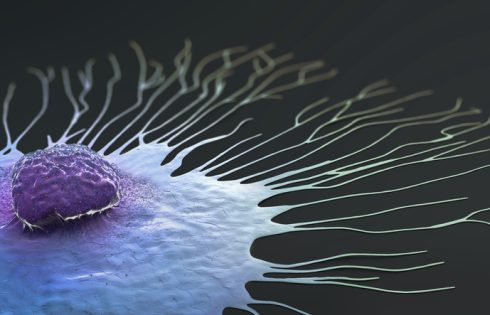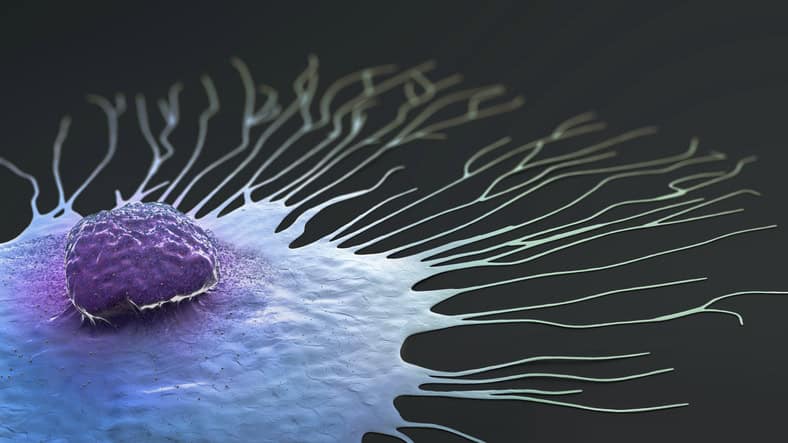
A preclinical study by researchers at Baylor College of Medicine has uncovered a mechanism that allows triple-negative breast cancer (TNBC) to develop resistance to immune checkpoint blockade (ICB) immunotherapy and to chemotherapy. The study, including tests in mouse models, showed that lipid accumulation in tumor cells and nearby immune cells promotes immune suppression. The results also indicated that disrupting lipid formulation reverses treatment resistance and the immunosuppressive microenvironment.
Xiang H.-F. Zhang, PhD, director of the Lester and Sue Smith Breast Center and professor of molecular and cellular biology at Baylor, is corresponding author of the team’s published study in Immunity, titled, “Tumor-derived arachidonic acid reprograms neutrophils to promote immune suppression and therapy resistance in triple-negative breast cancer,” in which the researchers concluded, “Overall, we demonstrate how lipid accumulation in TNBC cells leads to immune suppression and therapy resistance.”
Standard-of-care treatment for TNBC includes chemotherapy and immunotherapy, the authors explained. “For triple-negative breast cancer (TNBC), a combination of pembrolizumab (an anti-PD-1 antibody) and chemotherapies has been approved to treat advanced tumors in the neoadjuvant setting.” However, some initially responsive tumors still develop recurrences, “… suggesting acquired resistance mechanisms that remain poorly understood.”
Studying mouse models, Zhang and colleagues found that TNBC cells that survived treatment accumulated lipid droplets containing omega-6 fatty acids. Single-cell RNA sequencing revealed that neutrophils—a type of white blood cell—near the tumor cells also accumulated these lipids. “Single-cell RNA sequencing reveals a subset of neutrophils exhibiting a lipid-laden phenotype similar to adjacent tumor cells,” the investigators stated. “Mechanistically, tumor-derived extracellular vesicles carrying lipids, including arachidonic acid (AA), mediate neutrophil reprogramming.”
First author Liqun Yu, PhD, a postdoctoral fellow in the Zhang lab at Baylor, further explained, “We found the tumor cells give the lipid droplets to surrounding neutrophils. This shifted the function of the neutrophils from antitumor to tumor promotion.” The team in addition found that they could reverse therapy resistance and the immunosuppressive tumor microenvironment (TME) by disrupting lipid droplet formation. Blocking dietary intake of omega-6 fatty acids also resensitized the tumors to chemotherapy and immunotherapy.
“The prevailing perspective in our field has focused on the role of fatty acid metabolism in regulating the immune response and therapeutic response,” said Zhang, who is the William T. Butler, MD, Endowed Chair for Distinguished Faculty, and co-leader of the Breast Cancer Program at the Dan L Duncan Comprehensive Cancer Center at Baylor. “We found in this study that not only can fatty acids serve as an energy source, but they also are precursors of immunosuppressive signals the cancer cells can use to fight against our immune system.”
In their report, the team concluded, “Our findings suggest that the intake, processing, and storage of specific fatty acid in TNBC could alter their response to combined treatments involving ICB and chemotherapy. Our preclinical study offers potential strategies for pharmacological and dietary intervention to overcome therapeutic resistance, especially the acquired resistance.”
Zhang added, “We can advise patients to consume a diet low in omega-6 fatty acids, which is not significantly different from the general advice to lower red meat, fat, and sodium intake. We also are exploring therapeutic options to block fatty acid accumulation and immunosuppressive signals between the cancer cells and the neutrophils.”

